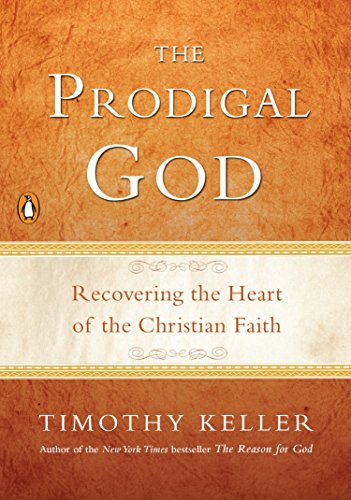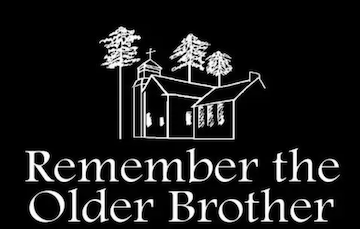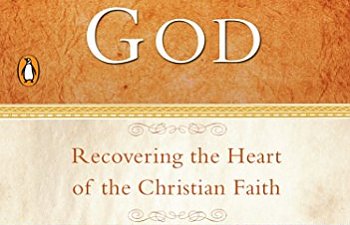
I wasn’t sure what I felt about “The "Prodigal God" until the very end of the book. Until then, I alternated between being in vehement denial of the author Tim Keller's assertions (thinking he made arguments which were a "stretch") to feeling completely enlightened & "fully sold" on the very next page.
And back around again.
I wrestled with Keller's ambitious take on one of the Bible's most well-known & puzzling parables "The Prodigal Son". It was a cognitive roller-coaster, one that was much appreciated in these emotionally-stifled, isolated days in quarantine!
What's It About?
"Prodigal God" ?? With this seemingly heretical book title, you may think the author, Timothy Keller, is buying himself a one-way ticket to the "lake of fire". (Turns out he has a good reason to call God ‘prodigal’, meaning wasteful or reckless)
"The Prodigal Son" from the New Testament is so well known that even non-Christians seem to be familiar with the title of the story. About 2,000 years ago, Jesus told this parable directly to the Pharisees, the Jewish religious leaders of the time.
As a refresher: it involved a father and two sons. The younger son (the prodigal one) demanded his inheritance, skipped town, and squandered all his money on prostitutes. Not exactly a Godly life. Broke and forced to work menial labor, he returns to his father's home defeated. Given his selfish behavior, it may surprise the reader that his father, upon seeing him, jubilantly welcomes him back, before the son can muster a word of apology, and orders his servants to throw a feast on his behalf.
The older son though.....is not having it. Loyal and his obedient to his father the whole time, he is outraged. Here's how he vents:
The father consoles the elder brother while justifying his decision. And that's how the parable ends.
For reference, here is the entire parable text if it's helpful for context. Feel free to skip past it to continue reading this blog post.
When I first read the Bible years ago, I puzzled over this story. Maybe you did too. Was it about how, separated from God’s law and guidance (assuming the father represents God), we make a mess of our lives? Or was this about the Church accepting people no matter how badly they've strayed? (something I ought to appreciate given I spent the first 40 years of my life in unbelief).
But for Tim Keller, it’s all About the Elder Brother

While most of us dwell on the younger brother (his tragic folly followed by his unqualified acceptance), Keller believes that our focus should be where Jesus' was -- on the Elder Brother (who represented the Pharisees). Through that character, Jesus condemns the arrogance and judgmentalism of the Pharisees (and according to Keller, this has relevance in the modern world even with no Pharisees left). In Keller’s world, the elder brother is not merely a jealous whiner but actually a true villain - and an archetype for what’s wrong with Christianity today! Strong stuff, but let me explain.
Context matters. Jesus was telling the parable to the Pharisees, who might be called the villains of the New Testament. The Pharisees were prominent Jewish leaders who kept strict observance of God’s laws, with emphasis on the ceremonial laws (to the exclusion of the moral ones- hence Jesus calling them “hypocrites” and a “brood of vipers”). Despite their Godliness (or maybe because of it), the Pharisees looked down on others.
In another biblical parable, “The Pharisee and the Tax Collector”, both the Pharisee and tax collector go to the temple to pray. Despite the tax collector possibly being in earshot, the Bible tell us this is how the Pharisee prayed:
The Pharisees used their obedience to God as reason to scold & exclude others (poor tax collectors- in Jesus’s day they were held in far greater disregard than we hold IRS employees today ;) . Back then, they were seen as traitors for siding with Rome and sinners for extracting bribes).
Keller explains "[Jesus] wants to show [the Pharisees] their blindness, narrowness, and self-righteousness, and how these things are destroying both their own souls, and the lives of people around them." And that through the parable, "Jesus is saying that both the irreligious and the religious are spiritually lost, both life paths are dead-ends." In other words, the Pharisees are no better than the ungodly Younger Brother. Perhaps they are worse because the Younger Brother only harmed himself.
Just as the Pharisees looked down upon sinners and excluded them from God’s kingdom, so too does the Elder Brother cite his loyalty to the father in the story as a reason why it’s unfair for the the sinning Younger Brother to be accepted by the father (who represents God).
That’s Sensible, So What’s your Problem with the Book?
Which Elder Brother?
Throughout the book, Keller identifies three different kinds of “Elder Brother”:
- The Elder Brother in the “Prodigal Son” parable
- The Pharisees (who the Elder Brother in the parable represents)
- Modern-day Elder Brothers in the church today (those who like the Pharisees consider themselves “more religious"; they are arrogant, unwelcoming, and look down on others - such as on their “race, religion, and lifestyle”)
(Click here for Part 2)


